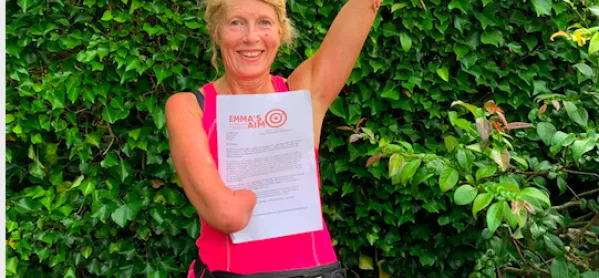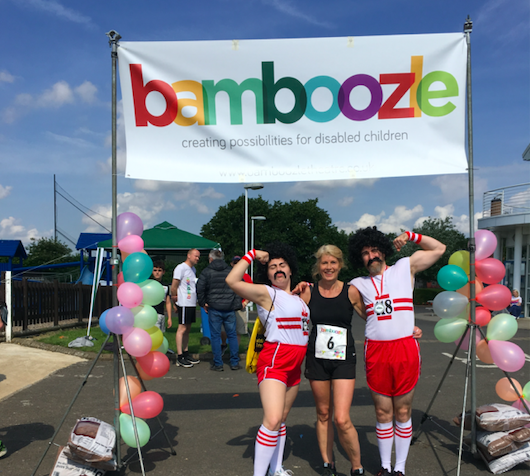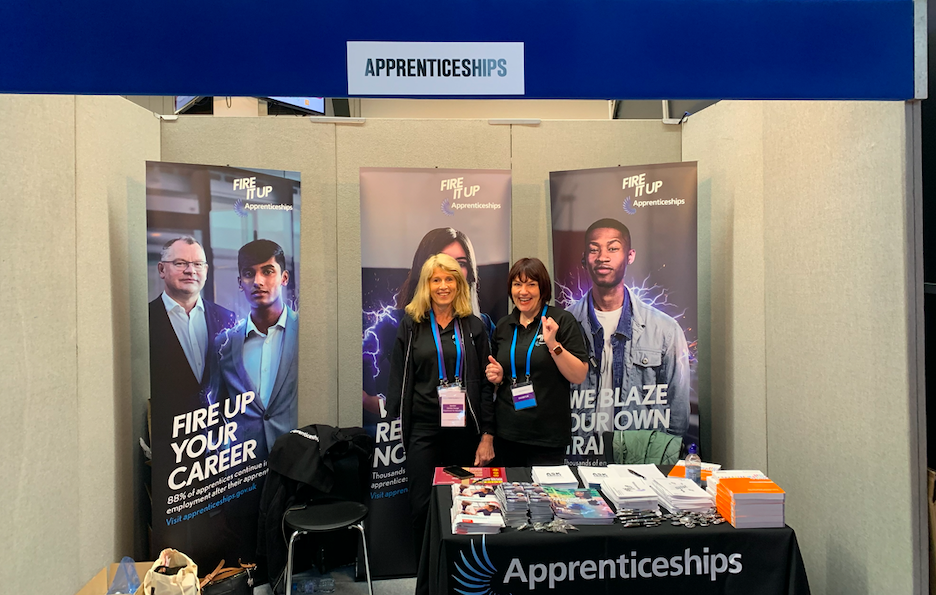Meet Carolyn Savage: Champion of youth engagement

When Carolyn Savage reflects on her life, it’s easy to see how she could have become Neet (not in education, employment or training) at the age of 16.
She was born with one arm: her family think she was affected by the thalidomide scandal, although that has never been proven. She lost both her parents very young and was brought up by her grandmother - for whom she was a full-time carer by 14, and who then passed away when she was 17.
“When I think about my upbringing and my background, most definitely I could have been Neet. I was an August baby, high risk for Neet, I lost my parents at an early age and was brought up by my grandma,” she says.
“I had disability and was a full-time carer at age 14, so it was not your typical upbringing, and there were many challenges.”
And while Savage overcame those challenges and went on to have a successful career in the civil service, she never forgot her background. Today Savage spends her days improving the life chances of teenagers who are at risk of becoming Neet, as head of Neet and youth engagement at the Education and Skills Funding Agency.
Neet young people: 5 takeaways from ONS data
More: Can we avoid mass youth unemployment post-Covid?
Opinion: Here’s a Neet idea: help young people
While at school, Savage says she never really thought about what she wanted to do when she grew up - there was too much going on in her personal life.
A path into the civil service
But, she says, there was one English teacher who supported her and inspired her throughout secondary school.
“When you speak to a lot of young people, they remember one teacher. I always remember an English teacher really supporting me through my GCSE and A levels at quite a difficult time. Careers education wasn’t an entity, we didn’t have very much, but she was very inspiring. I looked up to her and I remember talking to her about the future.” she says.
“University was probably a path I would have liked to have done because I had good GCSEs and A levels, but the path wasn’t open to me.”
Upon leaving school, Savage had three job offers, and she went to work for a logistics company in Morley, West Yorkshire. Eighteen months later, Savage rang her English teacher to say that she’d got a job in the civil service.
“Right from the beginning, I wanted to help people and support people. I wanted to jump into a civil service that enabled me to fulfil that,” she says.
Her first roles saw her supporting people signing on for unemployment benefits, and working on the Manpower Services Commission, before joining the Training and Enterprise Council. It was there that she first realised the power of skills and apprenticeships. Savage’s feelings on the impact that apprenticeships can have on young people came to the fore when she joined the Department of Education and helped to set up the National Apprenticeship Service.

As well as working on the National Recruitment Service within the apprenticeship service, ensuring that vacancies were bought together on the gov.uk online platform, Savage also worked with the Department for Work and Pensions to build a function that highlighted employers who welcomed applications from disabled candidates on the site.
Introducing technical education to primary school children
“I’m really proud of setting up the National Apprenticeship Service and the gov.uk recruitment service Find an Apprenticeship, and although it’s been developed quite a lot, that service still exists today,” she says. Savage says she was also instrumental in setting up the Apprenticeship Support and Knowledge (ASK) programme, which reached out to more than 2,000 schools across England and helps them with their statutory duty to provide information on apprenticeships and technical education. However, Savage says there is “still quite a lot of work to be done”.
“I welcome the proposals in the White Paper to strengthen the Baker Clause [which states that schools must allow colleges and training providers access to students]. We need to start introducing young people to the world of work and options other than just university. University is a great place, and I do support university education, but it’s not the only route to success.” she says.
“If we could start introducing that right through from primary so young people could see role models who’ve done really well through technical education, through apprenticeships, through other routes other than just going to university. We’ve done quite a lot already within the apprenticeship space, introducing higher and degree apprenticeships, but it shouldn’t have to have a degree in for people to take note. There’s still quite a lot of work to be done in that area.”
Coronavirus: the impact on apprenticeships and youth employment
Savage’s insight and expertise on apprenticeships was recognised when she was asked to work on the Covid response team for apprenticeships last year. Together with colleagues, she developed the apprenticeship redundancy package, and worked on the legislation that allowed apprentices to complete their programmes.
“I must admit, the pandemic hit, we were all in lockdown, and suddenly I was whisked over with a few people and then a few other people were given to me, and I just felt so responsible that I had to get it right, and I was up against time, and it was quite scary. It was scary for the team,” she says.
“But actually, they did a fantastic job. We managed to get the redundancy service up and running by last July, and the service is still running now. There’s been a number of apprentices who have already been supported into finding a new employer, which is fantastic.”
Savage says she would welcome more funding to support young people, but there will “always be competing pressures on the budget”.
“I’m a realist. We know from the pandemic that the economy has been scarred, we know young people are not feeling pretty good, there’s still a lot of uncertainty around and high unemployment. So we need to do everything within our power to support these young people through a really difficult time,” she says.
“Through my work on the Neet group, we know that a lot of young people are staying in full-time education at the moment. We need to make sure that is as flexible as possible. We probably need to flex some of the funding we’ve got around that, but we will invariably see people dropping out very soon. We’re already seeing high youth unemployment. It’s a really important time for us to be giving young people absolutely the priority they deserve, and that might need some additional money.”

Going forward, Savage says there are a number of challenges, and talks about the need to change the public’s mindset on technical education and apprenticeships. But, most of all, she’s concerned about youth unemployment.
Supporting those at a double disadvantage
“The worry is those who are really at a disadvantage are going to be doubly disadvantaged now. For the young person who’s got multiple barriers who would normally struggle to get a job, it’s going to be really really difficult,” she says.
“We’re looking at what we can do with some of those groups to provide more bespoke support. I know there’s been some calls for some more specialist support through Kickstart [the scheme that provides funding to employers to create job placements for 16- to 24-year-olds on Universal Credit] - maybe that’s the answer, maybe there are other solutions to that. But we need to look at those that are doubly disadvantaged - we shouldn’t forget those people.”
Savage’s commitment to the FE sector was recognised this year in the New Year’s Honours List, as she was given an OBE. She says the award gave her and her family “a great boost” over the Christmas period, as her daughter’s New Year’s Eve wedding had to be cancelled due to the pandemic.
As well as spending time Zooming her children - she also has a son who works for Deloitte in London - Savage has kept busy throughout the pandemic. She’s a trustee of a cancer charity called Emma’s Aim, and she runs regularly.
“I’m a busy person,” she laughs. “I’ve still been out doing my run at half 6 each morning. It’s kept me sane throughout the pandemic, let’s put it that way.”
You need a Tes subscription to read this article
Subscribe now to read this article and get other subscriber-only content:
- Unlimited access to all Tes magazine content
- Exclusive subscriber-only stories
- Award-winning email newsletters
Already a subscriber? Log in
You need a subscription to read this article
Subscribe now to read this article and get other subscriber-only content, including:
- Unlimited access to all Tes magazine content
- Exclusive subscriber-only stories
- Award-winning email newsletters